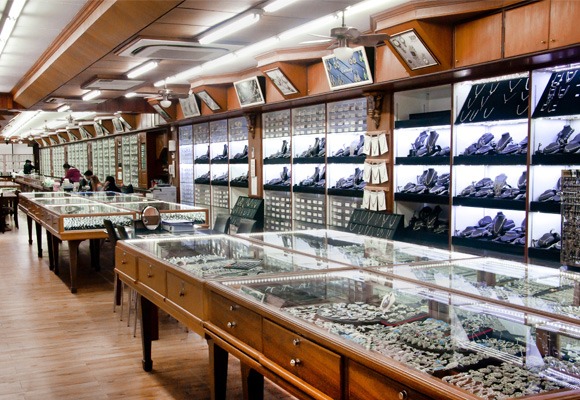Silver has always been a valuable and versatile metal, cherished for its beauty, durability, and utility. Whether you’re an investor, jeweler, or collector, buying silver wholesale can be a cost-effective way to acquire large quantities of this precious metal. However, navigating the wholesale silver market requires knowledge and savvy shopping strategies. This ultimate guide will provide you with essential tips and tricks to ensure you make informed and profitable decisions when buying silver wholesale.
Understanding the Wholesale Silver Market
What is Wholesale Silver?
Wholesale silver refers to the bulk purchase of silver at a lower price per unit compared to retail prices. This type of transaction is typically reserved for businesses, but individuals can also take advantage of wholesale prices if they meet the minimum order requirements set by suppliers. Wholesale silver can come in various forms, including:
- Bullion: Bars and coins made of pure silver, primarily used for investment.
- Jewelry: Finished pieces of silver jewelry sold in bulk.
- Scrap Silver: Recyclable silver from various sources, often melted down and reused.
Why Buy Silver Wholesale?
Buying silver wholesale offers several benefits:
- Cost Savings: Wholesale prices are significantly lower than retail prices, allowing you to maximize your budget.
- Investment Potential: Bulk purchases can provide a substantial return on investment, especially if silver prices rise.
- Inventory: For businesses, having a steady supply of silver ensures you can meet customer demand.
Tips for Buying Silver Wholesale
Research Reputable Suppliers
The first step in buying silver wholesale is finding reputable suppliers. Look for suppliers with a solid reputation, positive customer reviews, and a track record of reliable service. Consider suppliers that are members of professional organizations, such as the International Precious Metals Institute (IPMI), which can provide additional credibility.
Verify Authenticity and Purity
Ensuring the authenticity and purity of silver is crucial. Reputable suppliers should provide certification or documentation proving the silver’s purity, typically expressed in terms of fineness (e.g., .999 for 99.9% pure silver). Be wary of deals that seem too good to be true, as they may involve counterfeit or impure silver.
Compare Prices
Wholesale silver prices can vary significantly between suppliers. Take the time to compare prices from multiple sources to ensure you’re getting the best deal. Keep in mind that the spot price of silver fluctuates daily, so timing your purchase can also impact the price you pay.
Understand Minimum Order Requirements
Wholesale purchases often come with minimum order requirements. Make sure you understand these requirements before committing to a purchase. Some suppliers may offer discounts for larger orders, so consider pooling resources with other buyers if you can’t meet the minimum on your own.
Consider the Form of Silver
Decide which form of silver best suits your needs. Bullion bars and coins are ideal for investment purposes, while jewelry and scrap silver may be better suited for reselling or manufacturing. Each form has its own advantages and considerations, so choose wisely based on your goals.
Evaluate Shipping and Insurance Options
Shipping and insurance are critical factors when buying silver wholesale. Ensure the supplier offers secure and insured shipping options to protect your investment. Be aware of shipping costs, as they can add significantly to the overall expense.
Know the Market Trends
Stay informed about the silver market trends. Understanding the factors that influence silver prices, such as economic conditions, industrial demand, and geopolitical events, can help you make better purchasing decisions. Subscribing to market reports and newsletters can keep you updated on the latest trends.
Negotiate Terms
Don’t be afraid to negotiate terms with suppliers. If you’re making a large purchase, suppliers may be willing to offer better prices or more favorable terms. Building a good relationship with suppliers can also lead to better deals in the future.
Plan for Storage
Silver is a physical asset that requires secure storage. Whether you opt for a home safe, bank safety deposit box, or a professional storage facility, ensure your silver is stored in a secure and accessible location. Proper storage protects your investment from theft, damage, and environmental factors.
Keep Detailed Records
Maintain detailed records of your silver purchases, 실버도매 including invoices, certificates of authenticity, and any correspondence with suppliers. This documentation is essential for tracking your investments, ensuring authenticity, and for tax purposes.
Tricks for Savvy Silver Shoppers
1. Buy During Market Dips
Timing your purchase during market dips can save you money. Monitor silver prices and look for buying opportunities when prices are temporarily lower. Patience and market awareness can lead to significant savings.
2. Leverage Bulk Discounts
Take advantage of bulk discounts offered by suppliers. Even if you don’t need large quantities immediately, buying in bulk can provide long-term savings. Consider storing the extra silver for future use or reselling it when prices increase.
3. Diversify Your Silver Portfolio
Diversification is a key strategy for any investment. Don’t put all your funds into one type of silver. Consider diversifying your portfolio with a mix of bullion, coins, jewelry, and scrap silver. This approach can mitigate risks and maximize potential returns.
4. Join Silver Buying Groups
Joining a silver buying group can provide access to better prices and deals. These groups pool resources to make bulk purchases, allowing members to benefit from wholesale prices without meeting individual minimum order requirements. Networking with other silver enthusiasts can also provide valuable insights and opportunities.
5. Stay Informed About Regulations
Stay informed about any regulations or taxes that may affect your silver purchases. Different countries and regions have varying rules regarding the import, export, and sale of silver. Understanding these regulations can help you avoid legal issues and additional costs.
6. Invest in Silver ETFs
If storing physical silver is a concern, consider investing in silver exchange-traded funds (ETFs). Silver ETFs provide exposure to silver prices without the need for physical storage. This can be a convenient and cost-effective way to invest in silver.
Conclusion
Buying silver wholesale can be a rewarding endeavor if approached with knowledge and careful planning. By researching reputable suppliers, understanding market trends, and leveraging bulk discounts, you can make informed and profitable silver purchases. Whether you’re looking to invest, resell, or create beautiful silver products, these tips and tricks will help you navigate the wholesale silver market like a savvy shopper. Remember, the key to success is staying informed, patient, and strategic in your approach.




